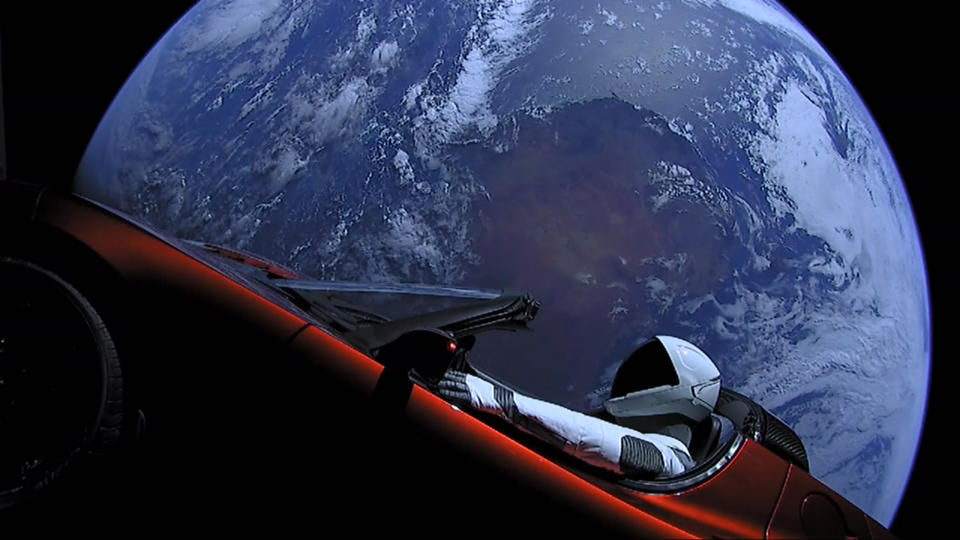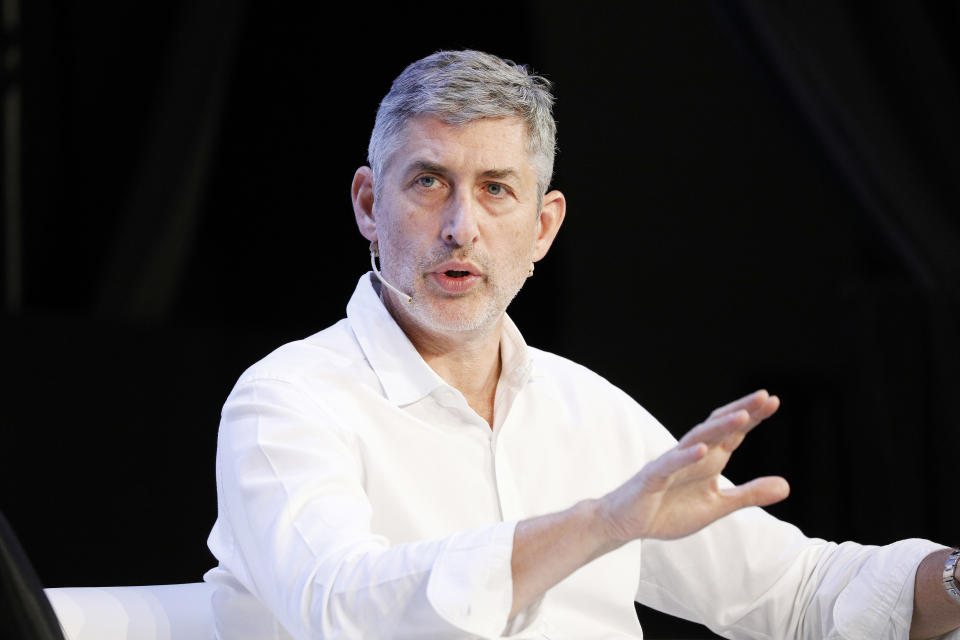Space startup CEO: 'You need regulation' of space — there isn't 'a cop up there'
Elon Musk’s SpaceX recently applied for permission to launch 30,000 more Starlink satellites into space, according to SpaceNews.
This is on top of the 12,000 already approved by the U.S. Federal Communications Commission, not to mention that SpaceX already deployed 60 units back in May. The notion of tens and thousands of hovering low-earth orbiting satellites in the near future may sound like a traffic controller’s nightmare. One satellite startup CEO believes space is a “shared resource” and calls for regulations to level the playing field.
“As a startup, you think that we would not want to be regulated. That's sort of anathema — you want to push the limits and do everything you can, but it's a shared resource,” said Adrian Steckel, CEO of OneWeb, on Yahoo Finance’s The Ticker.

“I think that in the greater context, if you look at companies in general, you need regulation, because there really isn't a cop up there,” he said
He gives the analogy that after a car crash, drivers and passengers walk away from the crash site, and a tow truck tows the cars. But he pointed out that his satellites travel at 16,800 miles per hour. He said at that speed, satellites are “going to shatter” and the debris left from the crash will “spoil that space for everybody.”
“Everybody needs sort of fair rules, and understanding that everybody plays by the rules to preserve that… Because it's not that I spoil it for myself, I spoil it for everybody,” he added.

Startup rivalling SpaceX and Blue Origin in the space race
OneWeb is a Softbank-backed startup rivaling SpaceX and Jeff Bezos’s Blue Origin to launch thousands of washing machine-size satellites in low-earth orbit. Its endgame? To bring high-speed internet to the world, including the arctic.
To get ahead of this race, the startup must be able to scale as quickly as possible. The good news is that costs of production are falling.
“It used to be that a geosatellite would cause $250 million — we've gotten those costs down to a million, and that's going lower,” said Steckel. “Launch costs are also coming down,” he added.
With Blue Origin right across the road, OneWeb’s factory at Cape Canaveral has its sights on the competitor, and is churning out satellites at speed. Steckel said he owes their ability to scale to robotization.
“It's really changing the entire supply chain of the industry... It's not the same as going to a supplier and saying, oh, I want five or 10 of that over a period of 18 months,” he said. “It's saying, no, I want 650 or 1,000 of those.”
OneWeb currently has filings at the ITU for up to 6,000 satellites.
“It's a scale game. It's a scale game for SpaceX, for us, for Amazon (AMZN).”
Grete Suarez is producer at Yahoo Finance for YFi PM and The Ticker. Follow her on Twitter: @GreteSuarez
Read more:
Cambridge Analytica whistleblower slams Facebook for 'stalker' practices
Deepak Chopra on market volatility: Take advantage of panicky investors
Wedbush's Dan Ives: 'I'm not popping the champagne yet for Tesla'
Robert Shiller: Trump has a 'psychological' impact on Fed, economy
Follow Yahoo Finance on Twitter, Facebook, Instagram, Flipboard, SmartNews, LinkedIn, YouTube, and reddit.

 Yahoo Finance
Yahoo Finance 